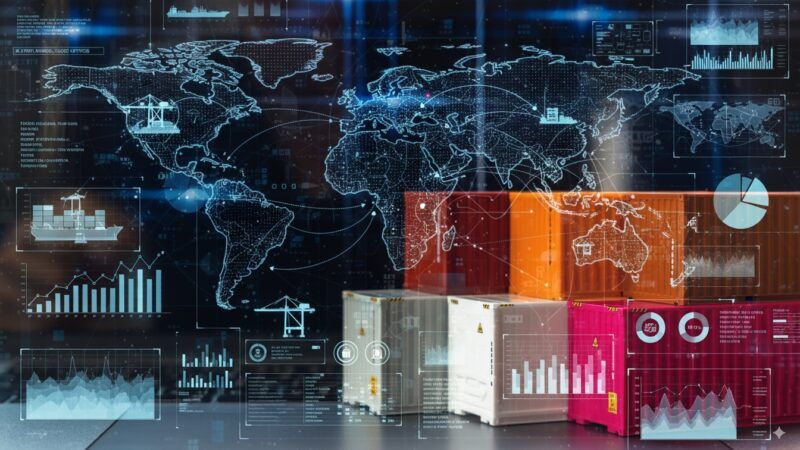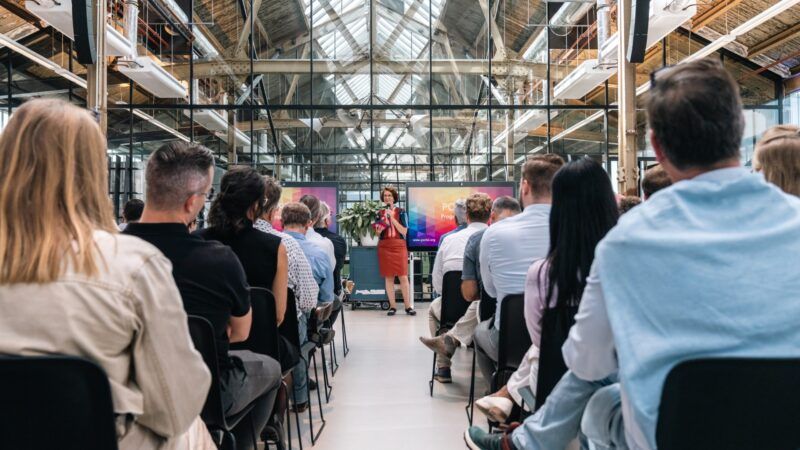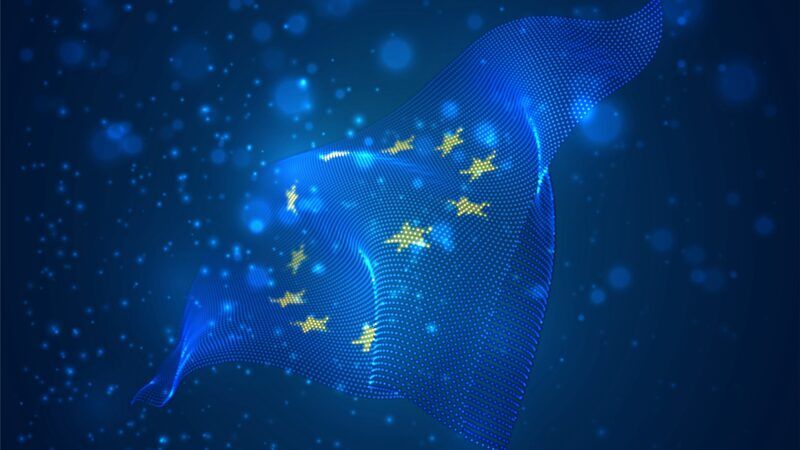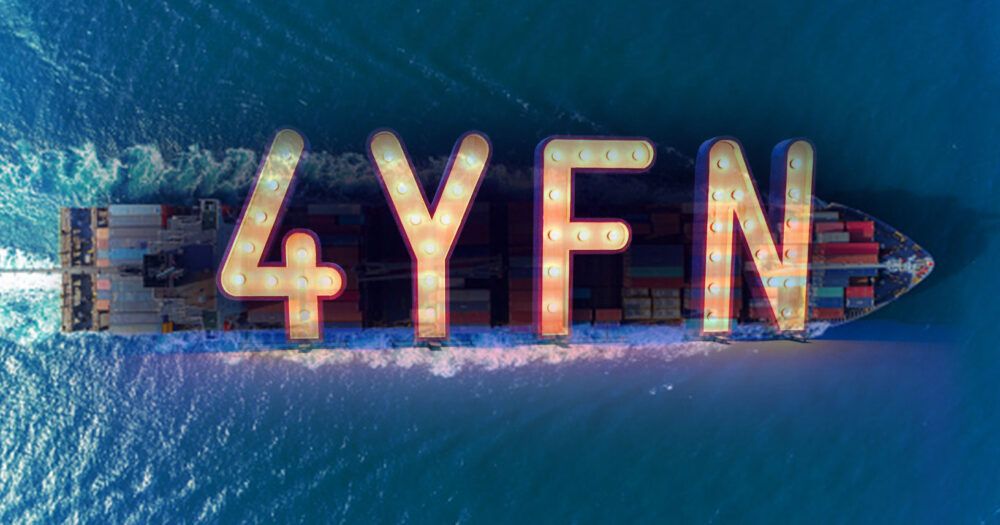 Scenarios such as 4YFN generate ecosystems that facilitate synergies between investors, Industry 4.0 players, including ports, and startups. (PierNext)
Scenarios such as 4YFN generate ecosystems that facilitate synergies between investors, Industry 4.0 players, including ports, and startups. (PierNext)
Logistics startups conquer 4YFN
Innovation shows good health in the logistics-port sector. PierNext spoke to six logistics startups that presented their creative solutions at 4YFN in Barcelona.
 Scenarios such as 4YFN generate ecosystems that facilitate synergies between investors, Industry 4.0 players, including ports, and startups. (PierNext)
Scenarios such as 4YFN generate ecosystems that facilitate synergies between investors, Industry 4.0 players, including ports, and startups. (PierNext)
Scenarios such as 4YFN generate the much-needed ecosystems that facilitate synergies between investors, Industry 4.0 players, including ports, and startups capable of solving, with technology and disruptive business models, the needs of the logistics-port sector.
The port-logistics startups that participated in the 4YFN event reflect the growing link between ports and technological disruptors.
A 4YFN with a logistics flavor: the technological innovations of six startups
1.SmartEcoReefer, intelligent passive refrigeration for perishable transport
In the case of perishable logistics, the insufficient quality when preserving these conservation quality of the products makes it difficult to export them over long distances, in addition to generating "a continuous dependence on energy that forces the containers to be permanently connected, which causes a heavy investment in infrastructure, high energy consumption and an unfeasible level of CO2 emissions," says Ignasi Sayol, CEO of Inprous.
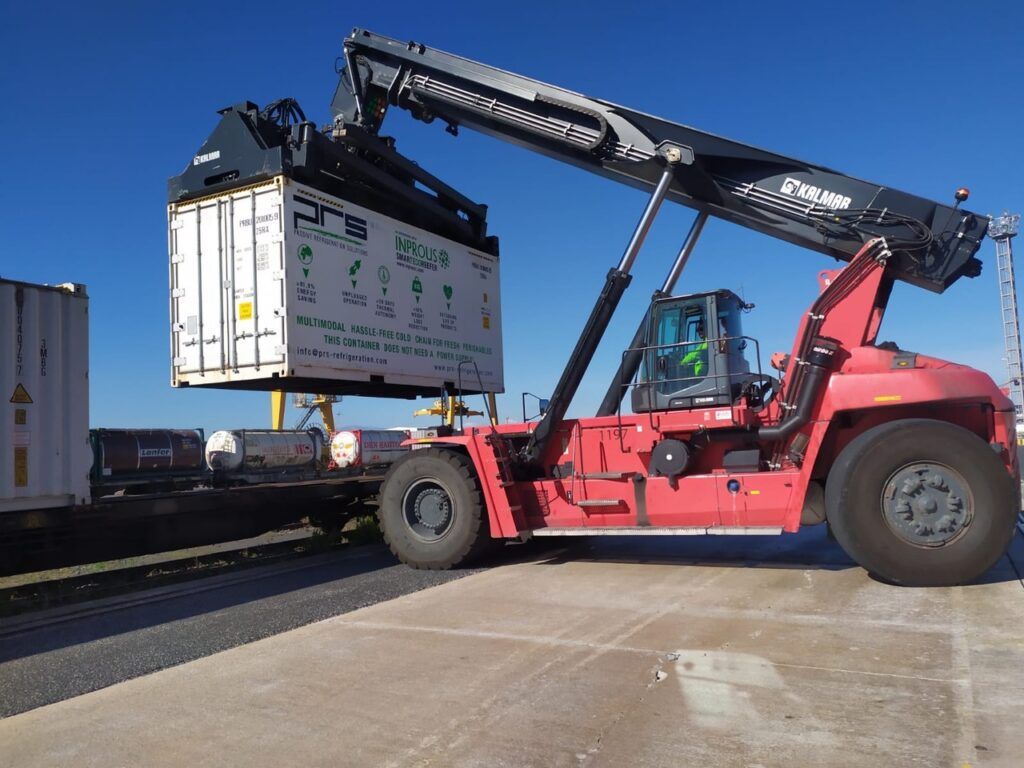
The company has created SmartEcoReefer based on the combination of four technologies:
- Passive refrigeration, which, when applied in its intelligent passive IoT containers, maintains the temperature for up to 32 days without the need for electrical connection.
- Sensorization that monitors positioning, temperature, humidity, O2, CO2, ethanol or ethylene in real time.
- Blockchain to certify the origin and traceability of products and all information related to their transportation throughout the supply chain.
- Artificial Intelligence (AI) to detect risks and avoid product losses.
In October 2021 they tested SmartEcoReefer in a real commercial test between a Catalan cooperative and Paris, with a stopover in Perpignan, transporting eight tons of Persimmon Persimmon Bouquet. And in 2020 it was one of the commercial projects subsidized by the first call of the Ports 4.0 Fund, a boost that Sayol hopes will accelerate its commercialization.
2. Keep it moving, balancing container traffic
Keep it moving is a container rental platform that encourages container movement. "Currently there are not enough containers in circulation and shippers would rather transport them empty to exporting countries than wait to find new cargo," recalls Javier Mendez, co-founder of the startup.
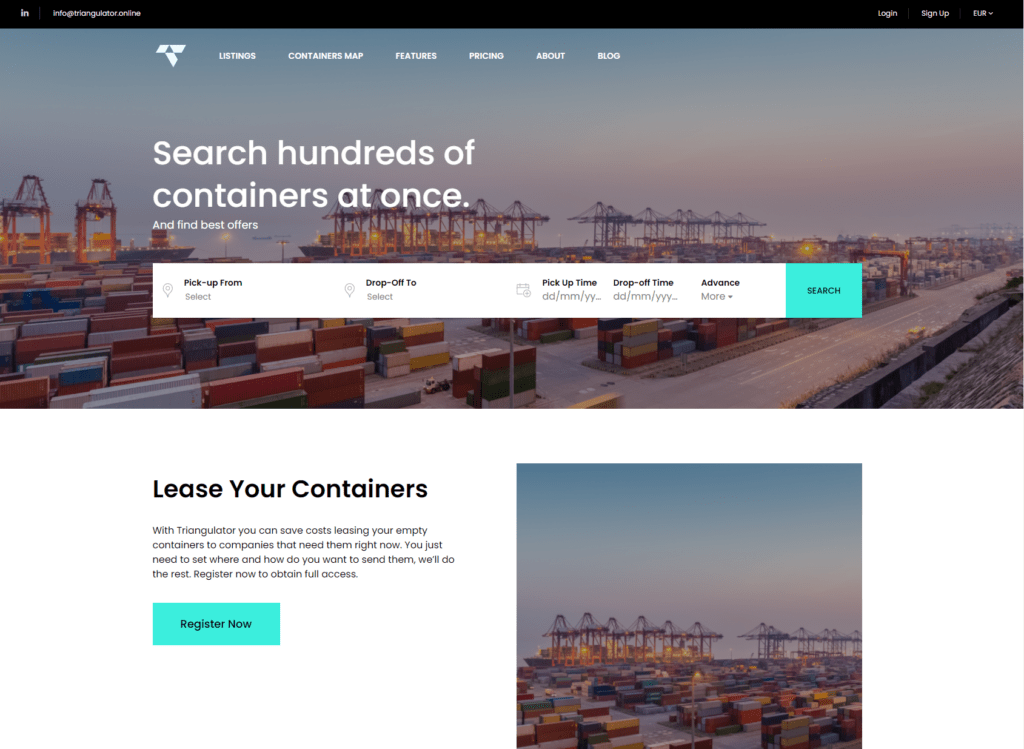
Keep it moving proposes to bring together supply and demand in a single marketplace where container owners publish their empty equipment, detailing the type of container, the place of origin and destination accepted and the general conditions. On the other hand, operators looking for equipment can consult available offers directly on the map or in a search engine based on criteria such as pickup or delivery location.
"Companies with surplus equipment will be able to evacuate it and make a profit or reduce costs by sharing it. And companies with shortages can find all available supply in one place," says Méndez.
3. Exocare, monitoring and increased safety of machinery and personnel
Based on the Internet of Things, Exocare focuses on the integral management of assets, understood as human capital and all the machinery used in logistics operations, to increase their safety, maintenance and monitoring.
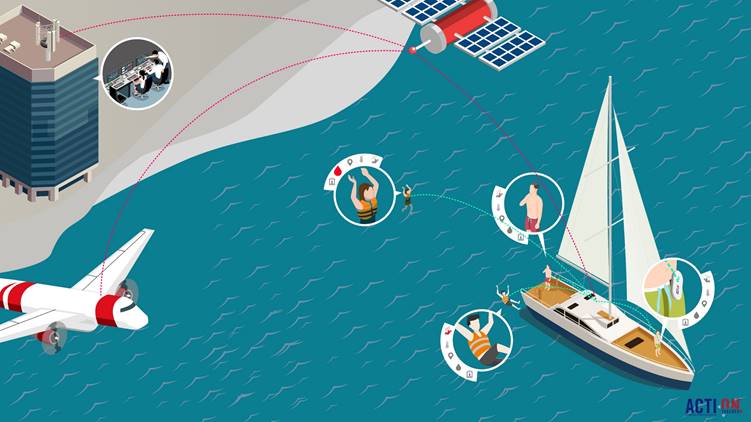
"The combination of Artificial Intelligence, Edge Computing, Edge Communications and, in the case of personnel carrying a wearable, which is a Personal Protective Equipment, that allows geolocation and permanent communication regardless of whether or not there is mobile coverage, facilitates not only the control of the operation but to interact with it remotely, improving safety and decision making," explains Eloy Martínez, its CEO.
Exocare also has a mobile application to send work orders which also detects falls or accidents, for example. It sends the data to a web application where each worker is represented in the shape of a helmet. The program can also save the worker's previous positions or view the battery status of his or her cell phone.
Startups in the sector offer heterogeneous solutions for container traffic, water pollution monitoring, cruise passenger management or safety in the workplace
4. GuideME, managing mass tourism from cruise ships
In the case of GuideME, the startup seeks to optimize the flow of passengers arriving on a cruise ship, an average of 5,000 people, who tend to concentrate in very specific points of the cities. In the case of cruise passengers who do not travel in organized groups, they all visit the same places of interest, generating friction between the industry and the city, since the economic impact it leaves on merchants cannot be evidenced.
"On the other hand, the cruise lines stop generating income from the excursions they sell and lose visibility and control of the cruisers once they get off the ship," says Javier Méndez, co-founder and CCO.
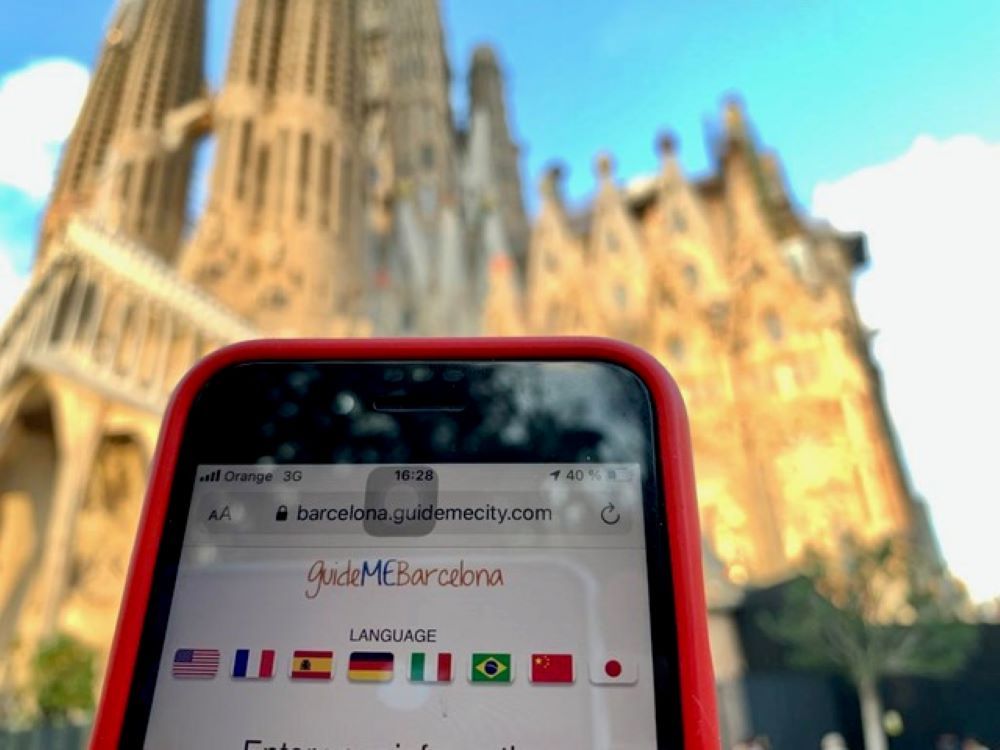
The startup has devised a tool, a digital experience for independent cruisers to rejoin organized circuits based on their profile after answering five or six questions. "It's a passenger-centric solution that manages to convince the tourist to accept itineraries that take into account city saturation in real time and include daily events," he explains.
In 2019, GuideME participated in a challenge convened by the Marseille Port Authority and other stakeholders in the ecosystem to receive proposals to influence the decision-making of digital natives cruising independently.
"The result was shocking: the numbers evidenced that it is indeed possible to influence the decisions and behaviors of tourists thus altering the overall flows of this segment. In 2021 we started a second stage, and we also included tourists coming from Marseille Airport," explains Méndez.
5. 3D Port, waste management
Every 4 seconds, humans throw 1000 kg of plastics into the sea, causing the extinction of marine animals and the destruction of corals and reefs. "Even if we managed to educate the consumer, establish laws and impose fines, we would still not know what to do with the 260,000 tons of plastic currently in the sea," says Ricardo Camilleri, co-founder of 3D Port.
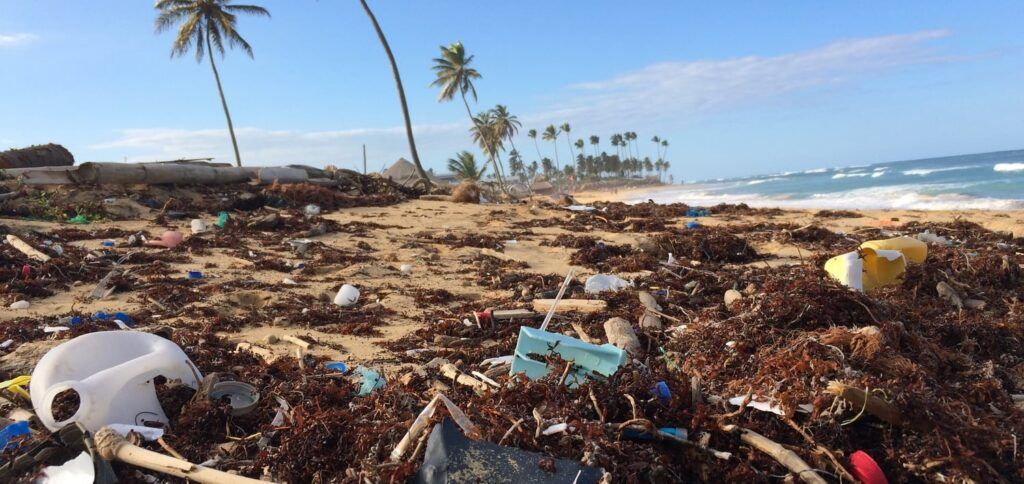
Its solution is based on reusing this plastic, collected in collaboration with fishermen or organizations that organize plastic collections at sea and on the coast, and then "reintroducing it in a sustainable way that generates a high value for its intrinsic properties. In addition, we intervene in early stages of the life cycle of plastic waste to prevent it from ending up in the ocean, collaborating, for example, with shipyards," he explains.
The project is at an early stage of development and right now, he explains, they are working exclusively with the Port of Barcelona, where they hope to validate their pilot test.
6. Fregata Space, quantifying marine pollution
Fregata Space is a terrestrial observation platform that determines the level of pollutants in water bodies, providing data to support sustainability goals. Jonatan Domenech, its CTO, explains that they have designed "an event architecture between software microservices located in the cloud that allows monitoring chlorophyll, bacteria, plastics, transparency, dissolved organic matter and carbon in the water of a 10,000 km² area in just 20 seconds."
They employ several technologies:
- Big Data and Machine Learning to manage the size of the images captured by satellites and generate algorithms.
- Remote sensoring to calibrate and certify its algorithms. "Let's imagine that Fregata Space's algorithm detects that there is a certain amount of bacteria in Mar Bella. We can verify this value with data from a sensor located on that beach. If it doesn't match, we calibrate it so it will do it thereafter," he says.
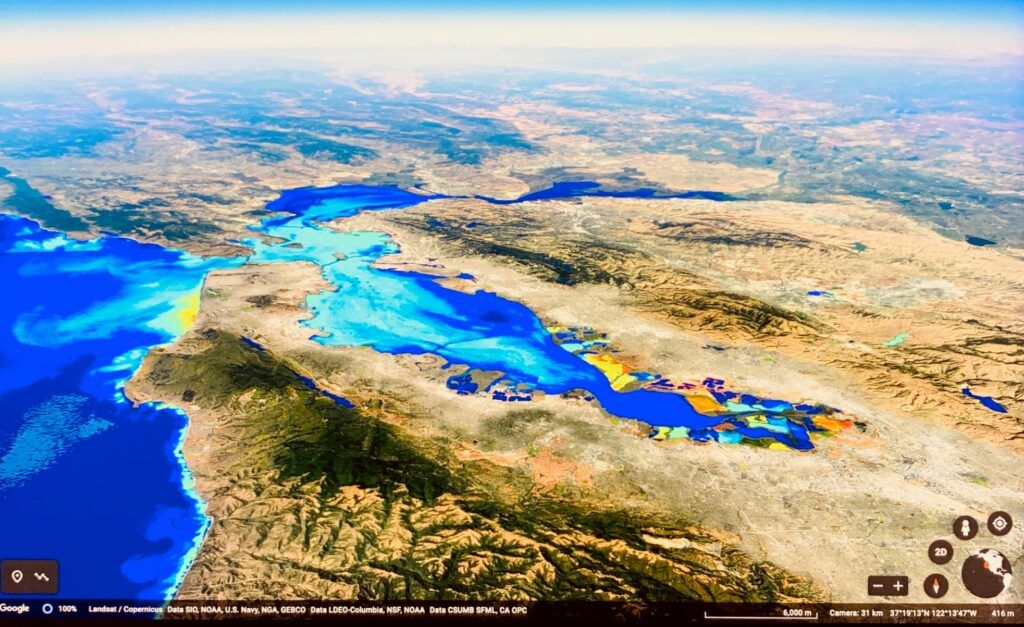
Although they are still testing the product, they are already carrying out projects in Barcelona, the Dominican Republic and Panama. "In the Port of Barcelona we detected that there is a discharge of rainwater that leaves dissolved organic matter when it is not raining and a fuel leak next to the Open Arms ship. In conversations with port personnel we were told that they were unaware of this and that the fuel leak was from a ship being scrapped," he shares.
The success of port logistics startups at 4YFN
Ignasi Sayol explains that his solution has been very well received by the sector, as it makes it possible to capture traffic without investing in costly infrastructures and reducing the carbon footprint they generate. He emphasizes that the 4YFN is an opportunity to meet and establish collaborations with other innovative companies "that allow us to be more efficient and go faster in our projects."
On the other hand, Javier Méndez says that GuideME went with the aim of "looking for talent, as we are gaining traction and looking to expand. 4YFN is also a place to meet brilliant people, establish relationships and share best practices within the entrepreneurial ecosystem."
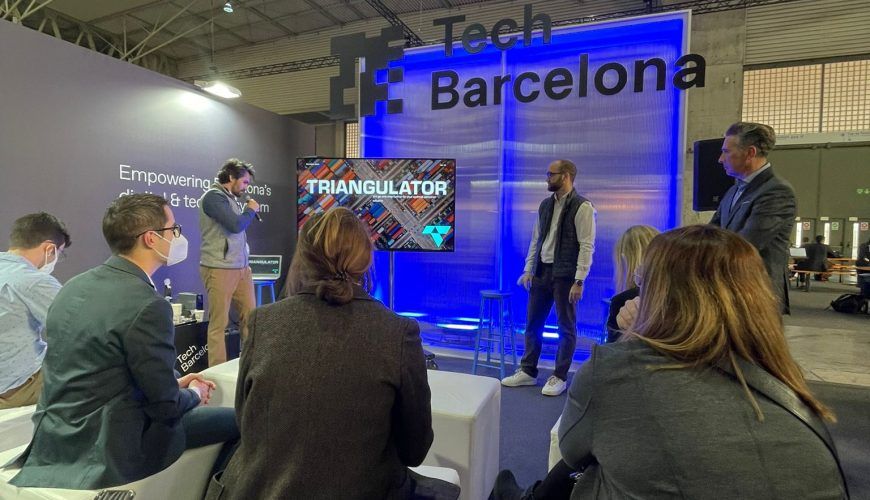
He explains that they have established talks with the port of Hamburg and have awaken the interest of Italian ports. "Our goal is to settle in the main ports of the Mediterranean to cover most of the cruise itineraries in the area and then scale to other regions."
In the case of Fregata Space, they already evaluate the water quality of 4,000 ports around the world to reward the least polluting ones in each country and gave a demonstration to Pasco, the company that manages the Japan Aerospace Exploration Agency's ALOS satellite constellation.
Jonatan Domenech values their presence at 4YFN because it means that they are "an emerging startup that wants to start defining what Fregata Space will be in 2026."
For Eloy Martínez, the increasingly close relationship between sector and industry indicates changes in the logistics sector, traditionally reluctant to innovate. The Ports 4.0 call, of which Exocare has been selected as one of the 19 pre-commercial solutions, and the creation of events such as 4YFN allow closer contact between all parties.
"The port-logistics environment has realized that it can no longer operate as always and has started to embrace digitalization and the use of technologies. Automation first occurred in warehouse management and then it moved to fleet control," he explains.
Finally, the 4YFN has been the first face-to-face event where 3D Port has been presented publicly, as the idea emerged in the middle of the pandemic. "The event has meant an opening at an international level and a huge opportunity to connect with other startup leaders, potential facilitators and industry players and to have a direct contact with the state of the art of the technology," concludes Ricardo Camilleri.



